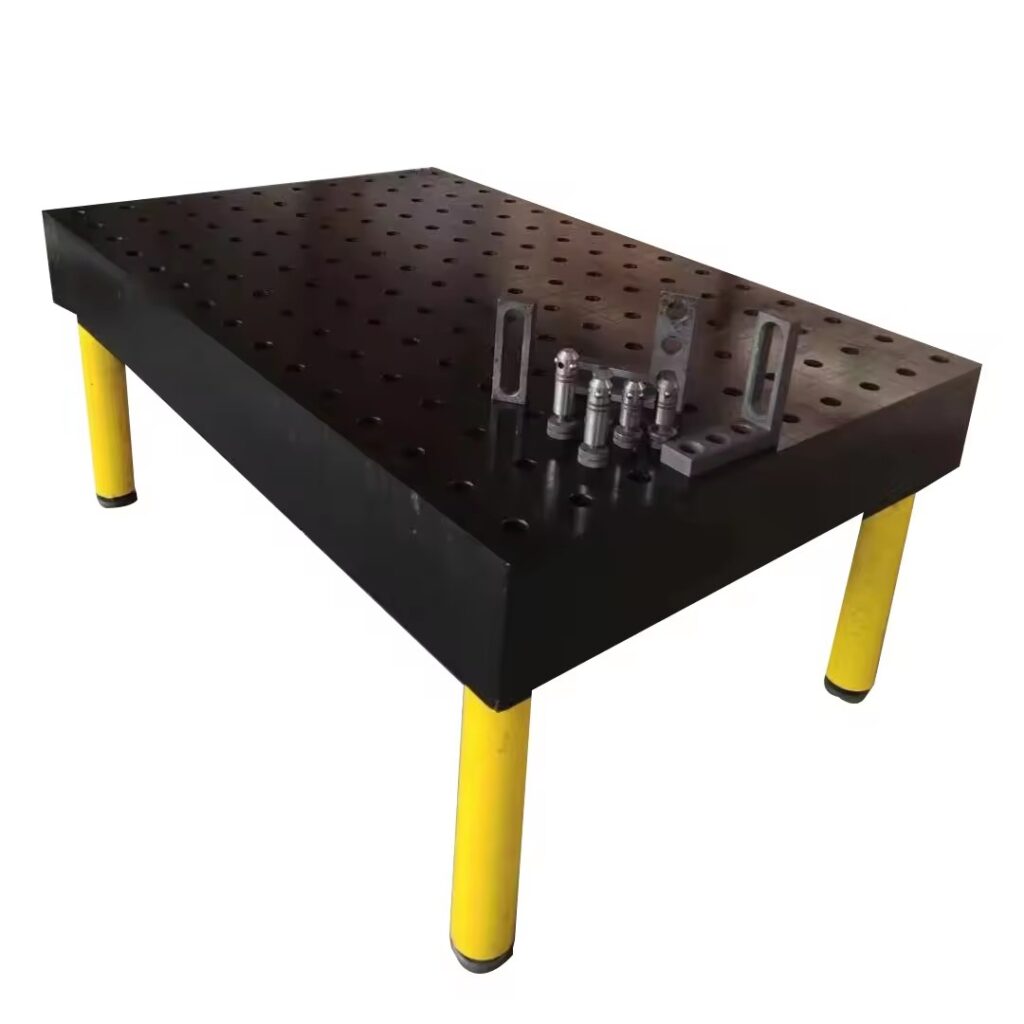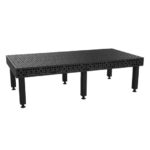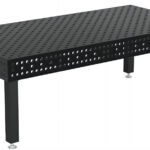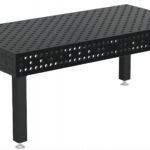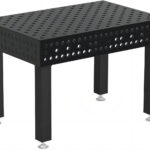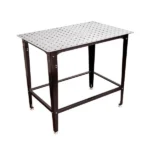When setting up a welding workspace, one of the key considerations is the type of table you will use. A common question is, "Can I use an aluminum plate for a welding table?" This article explores this question and delves into related considerations for choosing the best welding table for your needs.
Why Choose Aluminum for a Welding Table?
Aluminum is a lightweight and durable material, making it an appealing choice for many applications, including welding tables. However, using aluminum for a welding table comes with certain considerations:
- Heat Conductivity: Aluminum conducts heat very well, which can be a disadvantage when welding. The heat from the welding process can spread quickly, potentially causing warping or damage to the aluminum plate itself. This can affect the quality of your welds and the lifespan of your table.
- Electrical Conductivity: Aluminum is also a good conductor of electricity, which means it can interfere with grounding your welder. Proper grounding is crucial for safety and the quality of the weld. If you do choose an aluminum table, ensure you have a reliable grounding solution.
Can I Ground My Welder to an Aluminum Table?
Yes, you can ground your welder to an aluminum table, but it requires careful setup. Ensure that the grounding clamp makes solid contact with the aluminum plate. You may need to clean the contact area frequently to maintain good conductivity. Regularly check connections to prevent electrical issues.
Alternative Materials for Welding Tables
While aluminum has its benefits, there are other materials often preferred for welding tables:
- Steel: Steel is the most common material for welding tables. It is strong, durable, and can withstand high temperatures without warping. Steel tables are also easy to ground, making them a safer option.
- Cast Iron: Cast iron tables are incredibly sturdy and provide a stable surface for welding. They are less prone to warping and can handle heavy-duty use, making them a great choice for industrial applications.
- Stainless Steel: Stainless steel tables are resistant to rust and corrosion, making them ideal for environments where moisture is a concern. They are also easy to clean and maintain.
Can You Make a Welding Table Out of Aluminum?
Yes, you can make a welding table out of aluminum, but it may not be the best choice for all welding applications. For light-duty welding or specific tasks that require aluminum, such as TIG welding on aluminum parts, an aluminum table could be suitable. However, for heavy-duty or high-heat welding, a steel or cast iron table is generally recommended.
Applications and Scenarios
When considering the type of welding table to use, think about the specific applications and scenarios in which you'll be working:
- Light-Duty Welding: For occasional or light-duty welding, an aluminum table might suffice, especially if mobility and ease of setup are priorities.
- Heavy-Duty Welding: For industrial or high-frequency welding, a steel or cast iron table will offer the durability and stability needed for consistent, high-quality welds.
- Outdoor Use: Stainless steel tables are excellent for outdoor use due to their resistance to rust and corrosion.
FAQs
- Can a metal cabinet be a welding table?
- A metal cabinet can be repurposed as a welding table if it provides a flat, stable surface and proper grounding can be achieved.
- Can a welding table have non-metal casters or rubber casters?
- Yes, but ensure the table is properly grounded. Non-metal or rubber casters can help with mobility while protecting your floors.
- Can you lean on a welding table?
- Yes, a well-constructed welding table should be sturdy enough to lean on. However, always ensure it's stable and secure before doing so.
For more detailed information on our welding tables and to make a purchase, visit our website kt-foundry. Our team is ready to assist you in selecting the perfect welding table for your needs.

